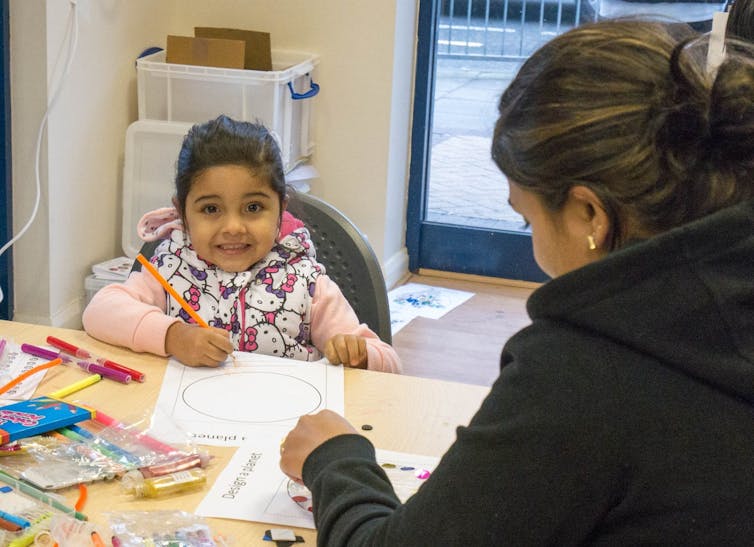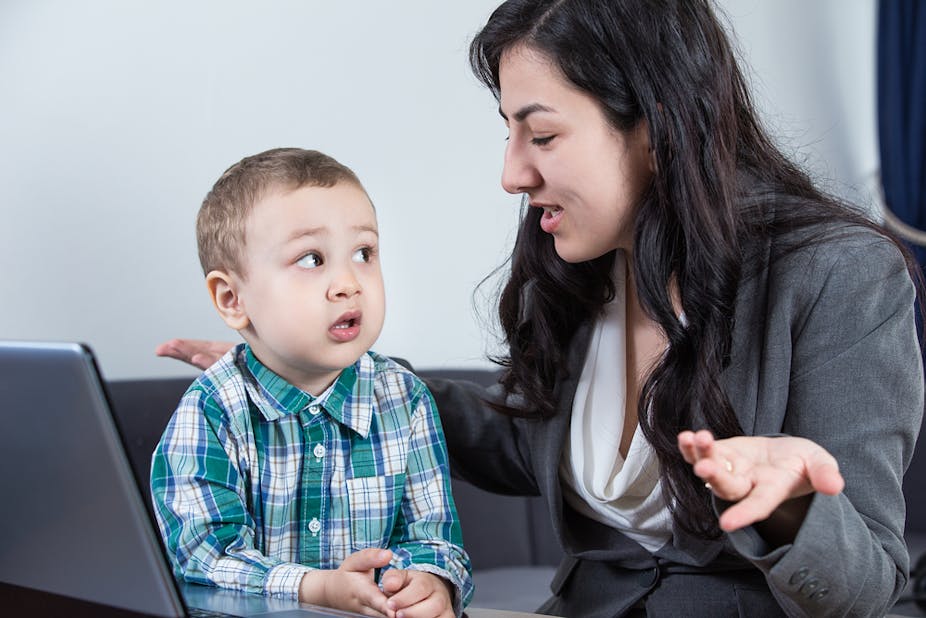If a child asked you how close an astronaut can get to the sun, the chances are you’d need a moment – or perhaps a search engine – to figure it out. Anyone who has spent some time with young children know that they ask “why?” – a lot. Children have a curiosity about the world that leads them to question almost everything around them.
Unfortunately their parents typically don’t. A recent survey of 1,000 parents found that 83% of them couldn’t answer simple school science questions. While this may seem concerning, what’s more worrying is that 63% admitted to making up answers so that they didn’t have to admit to not knowing. So what should you do if you don’t know the answer?
The Institution of Engineering and Technology, which carried out the survey, and parenting website Mumsnet recently held a Twitter party with the hashtag #AskTheEngineers. Parents were asked to tweet questions that their children had asked, and then a team of engineers would tweet back answers. You can have a look at some of the questions below. Could you answer them?
-
How does gravity work? And what would happen without it?
Why do beavers build dams?
Why can’t we hear dog whistles?
How do stars stay in the sky?
How do onions make your eyes water?
Why do power stations have so much smoke coming out of them?
If light comes from the sun, where does dark come from?
Many primary schools put on after-school sessions for parents explaining how they can support their children with English and Maths. Parental support is known to be an important factor in how well a child does in school, so by equipping parents with the confidence to help their children, schools are aiming to improve the achievement of their pupils.
However, very few primary schools provide similar support in science. And, as the survey shows, this is an area that many parents feel unable to answer when their asked by their child.
Science isn’t about right and wrong
But do parents need to know all the answers? The questions posed to #AskTheEngineers cover a huge range of science and engineering topics – some not even taught at school. They also include questions that science doesn’t yet fully know the answer to (how does gravity work?) as well as questions that are more philosophical in nature (what is dark?). For that reason, I don’t think it makes sense to expect parents to know it all.

In fact, it’s far more important that parents feel confident in saying “I don’t know, let’s see if we can find out”. Many people who finished their science education at the age of 16 have gained the impression that science is about knowing the right answers because this is how they experienced science up to that point.
However, successful science involves not knowing the answer, but being willing to ask questions, just like children do. By admitting that they don’t know the answer and then searching for the answer, parents are modelling good practice to their children – supporting them in their educational development. There are many great websites that aim to communicate science to a general audience, including BBC iWonder, The Naked Scientists, or the Royal Institution ExpeRImental films.
I’m involved in the Think Physics project at Northumbria University, which is currently working with parents to increase their confidence in talking about science with their children. We have developed a five-week after-school club called “Science for Families”, which we are running with partner local authorities. Children, and their parents, come along to each session and together learn about different topics in science through hands on experiments using everyday objects.
The key aim of the sessions is to show parents that science is all about asking questions and exploring phenomena to find the answers. We aren’t aiming to “teach” parents the science topics that their children will be learning about, rather we are aiming to give them confidence to have conversations with their children about science.
Recent research has emphasised the importance of parents in children’s career choices, showing that parents who are comfortable talking about science are more likely to encourage their children into careers which involve science. So if you’re stuck with an inquisitive child or two at home, just embrace their curiosity and learn with them.
So how close is it possible for astronauts to get to the sun? The engineers at the Twitter party replied that satellites can get even closer than Mercury, which is the closest planet, but they get very hot. However, it takes years and years to get there, so we haven’t sent any astronauts yet. You can view more of the engineers’ answers here.

